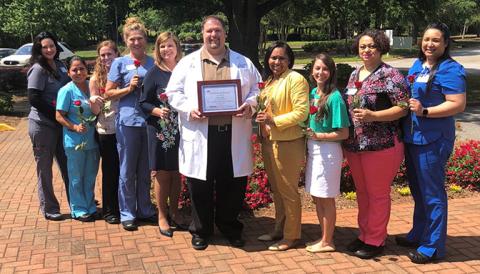Blog
What Does a Podiatrist Say About Flip-Flops?
Posted on July 10, 2018 - A casual summer staple, flip-flops are popular with men, women and kids – especially for outside activities. But before slipping on these warm weather favorites, be sure you know the appropriate way to wear this type of shoe, advises Dr. Edward Szabo, a podiatrist at Georgia Regents University.
RoseCrest Garners Vohra Center of Excellence Certification
Posted on July 6, 2018 - Everything is “coming up roses” for our RoseCrest Rehabilitation and Healthcare Center in Inman, South Carolina. RoseCrest has been certified as a Vohra Center of Excellence for Wound Management. It’s yet another accomplishment for the community that also recently achieved 5-star status by Medicare.
Drinking Water May Help Exercising Seniors Stay Mentally Sharp
Posted on May 17, 2018 - Hydration boosts performance on test of executive function following exercise
In May, We Celebrate Healthy Vision Month
Posted on May 15, 2018 - Most of us know the importance of medical and dental care—yet, according to the National Eye Institute, millions of Americans have never had their eyes examined! That’s why this year, the theme of Healthy Vision Month is “Make Vision a Focus.” To find some tips for protecting your eyesight, and special information about vision problems in older adults, read “In May, We Celebrate Healthy Vision Month.”
Lingering Negative Responses to Stress Linked With Health a Decade Later
Posted on May 10, 2018 - People whose negative emotional responses to stress carry over to the following day are more likely to report health problems and physical limitations later in life compared with peers who are able to “let it go,” according to findings published in Psychological Science, a journal of the Association for Psychological Science.


